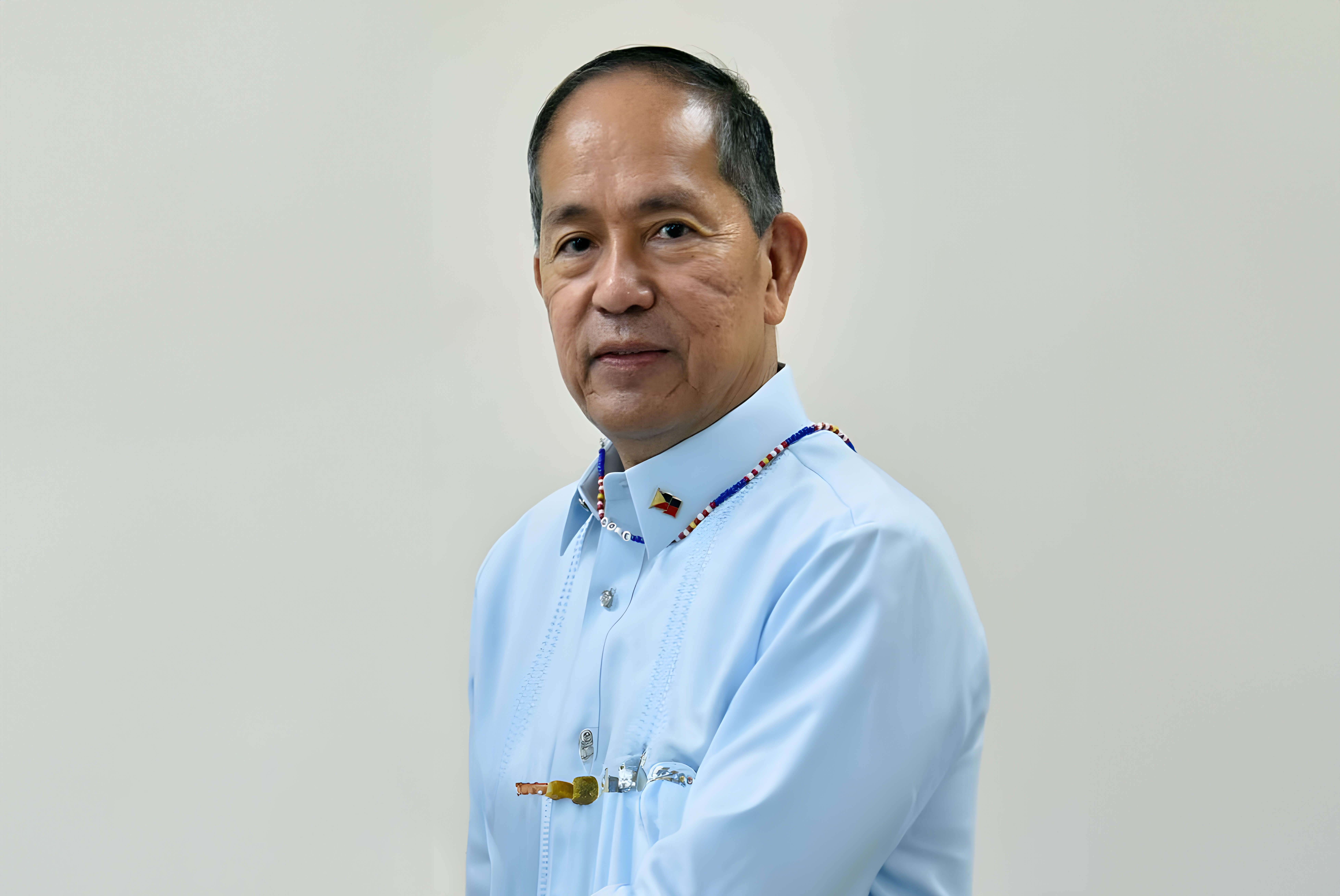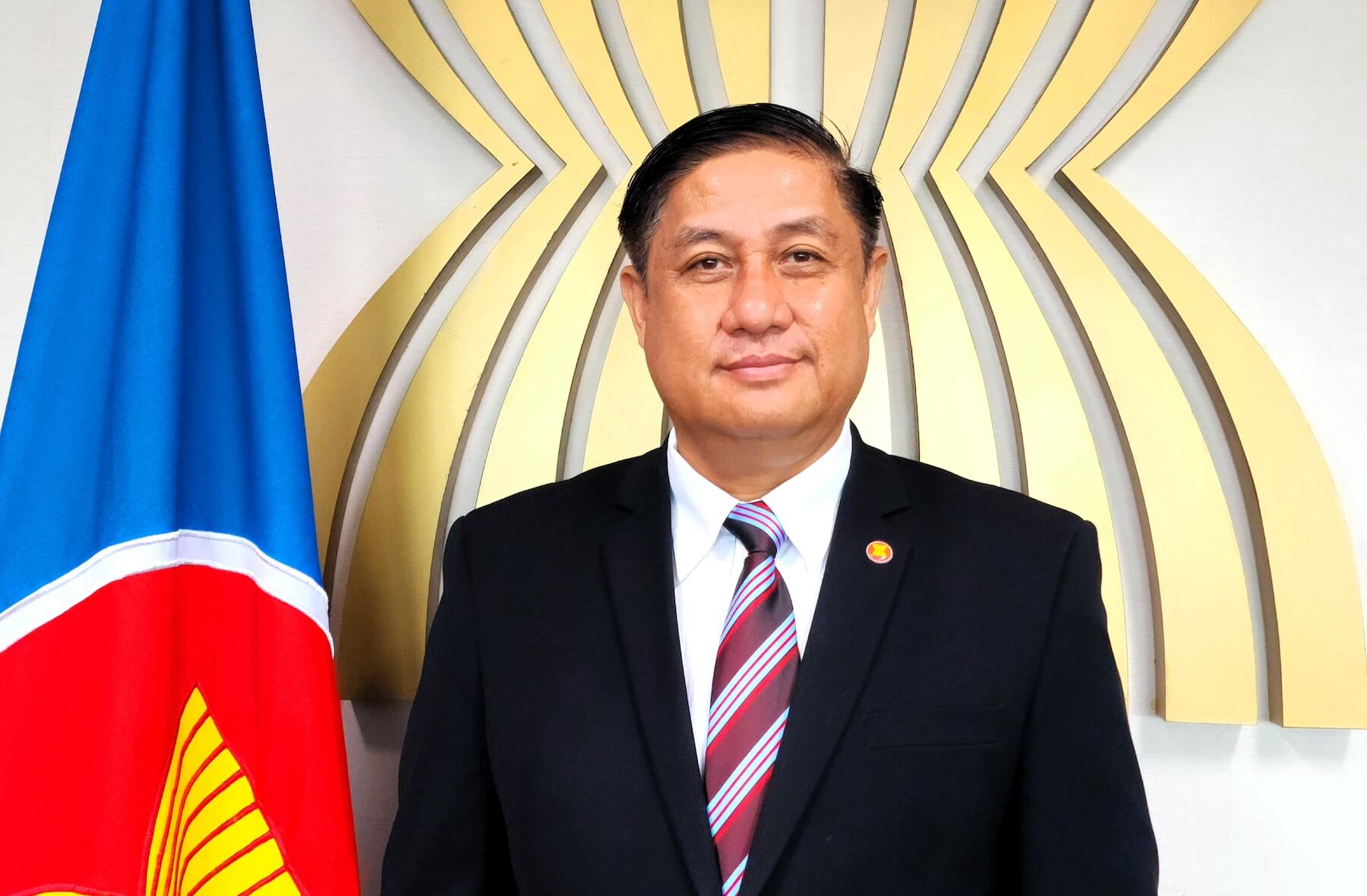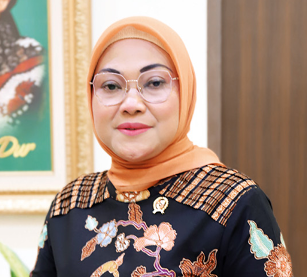


Philippine Labor Secretary Bienvenido Laguesma, who serves as ALMM Chair, discusses two new ASEAN declarations that champion the rights and welfare of migrant workers and their families. He also describes a Philippine-led public campaign to raise awareness on safe and fair migration in the ASEAN region. Secretary Laguesma also shares some of the Philippines’ recent initiatives to assist its migrant workers, especially during the COVID-19 pandemic. These include the creation of an online platform to track their repatriation, provision of various forms of assistance, and the establishment of a new department for migrant workers.
The ASEAN Labour Ministers Meeting champions the development of the ASEAN Declaration on the Protection of Migrant Workers and Family Members in Crisis Situations and the ASEAN Declaration on the Placement and Protection of Migrant Fishers as part of Indonesia’s ASEAN Chairmanship priority this year to strengthen social protection for migrant workers. What will be the impact of these Declarations on the region’s steadfast commitment towards greater protection of the migrant workers and their family members?
The ASEAN Declaration on the Placement and Protection of Migrant Fishers and the ASEAN Declaration on the Protection of Migrant Workers and Family Members in Crisis Situations demonstrate the region’s commitment to safeguarding the rights and welfare of migrant workers and their families. The declarations reinforce previous commitments and international human rights standards, including the ASEAN Consensus on the Protection and Promotion of the Rights of Migrant Workers and the Universal Declaration of Human Rights.
Specifically, the ASEAN Declaration on the Placement and Protection of Migrant Fishers acknowledges that fishing is a hard-to-reach and hazardous occupation that exposes migrant workers to poor working conditions, such as abusive recruitment practices and inadequate labour inspection. To address these issues, ASEAN Member States commit to mainstreaming the protection of migrant fishers in all relevant migration policies, enhancing their labour conditions and rights protection, and identifying and punishing all forms of violence, abuses, and exploitation against them.
Overall, these declarations serve as an essential step towards promoting equitable access to social protection and basic social services, enhancing the well-being of ASEAN people, and building an inclusive, sustainable, resilient, and dynamic ASEAN Community.
The Philippines is currently spearheading the project “Public Campaign for Safe and Fair Migration in the ASEAN Region.” Can you tell us more about this project? What are the expected outcomes? How do you envision such an initiative to contribute to further strengthening migrant workers’ education and safe migration programmes?
The Public Campaign on Safe and Fair Migration in the ASEAN Region is a recently completed initiative led by the Philippines, which aimed to raise awareness on safe and fair migration to improve the protection and promotion of the rights of migrant workers in ASEAN. It was pursued in partnership with the ASEAN Secretariat, the International Labour Organization (ILO), and the Enhanced Regional EU-ASEAN Dialogue Instrument (E-READI). The project was carried out in collaboration with the ILO’s Safe and Fair Project and UN Women with the support of the EU under its Spotlight Initiative.
The management of the project was lodged with the Department of Labor and Employment (DOLE) in 2020, with the Philippine Overseas Employment Administration, DOLE-International Labor Affairs Bureau, and the DOLE-Institute for Labor Studies acting as joint implementing agencies. The outputs included audio-visual presentations (AVPs), the production of which underwent a vetting process by the 10 ASEAN Member States representing the ASEAN Committee on Migrant Workers), through the ASEAN Secretariat (ASEC). E-READI funded the consultancy agreements with ten national experts from each Member State, which provided technical and administrative support for the research and video production phases of the project. It also facilitated the subtitling of the AVPs in key ASEAN languages (Filipino, Bahasa Indonesia, Burmese, Khmer, Lao, Thai, and Vietnamese) in coordination with DOLE and ASEC.
The two AVPs targeted countries of origin and countries of destination. The AVP for countries of origin is a short video that aims to provide reliable, updated, and easy-to-comprehend information about labour migration in the ASEAN region. It also aims to increase viewers’ awareness about rights violations during the migration cycle, with a specific focus on irregular/undocumented labour migration. The AVP for countries of destination is a short film that reinforces the importance of being a regular labour migrant and the risks associated with being an irregular or undocumented migrant in countries of destination. It provides a checklist of do’s and don’ts for migrant workers upon arrival at the country of destination or airport and their worksite.
The development and dissemination of the AVPs as part of the Public Campaign on Safe and Fair Migration in the ASEAN Region is an important initiative that can contribute to strengthening migrant workers’ education and safe migration programs. By complementing pre-departure orientation conducted by the country of origin, the AVPs can reinforce key messages and information that migrant workers need to know to ensure that they are fully informed and prepared for their journey. The AVPs can also inspire viewers to choose and promote fair recruitment and safe labour migration, thereby promoting better working conditions and opportunities for migrant workers. Through this initiative, migrant workers and their families can have better access to reliable, updated, and easy-to-comprehend information about labour migration in the ASEAN region, helping to reduce the risks and challenges associated with migration. Overall, the AVPs can contribute to a more informed and empowered migrant workforce that is better equipped to protect their rights and ensure safe migration.
The Philippines is one of the largest sources of migrant labour in the region and the world. Can you share with us some of the Philippines’ recent initiatives to protect the rights and improve the well-being of migrant workers, especially those severely impacted by the COVID-19 pandemic?
The Philippines has been taking proactive steps to protect the rights and improve the well-being of its migrant workers, especially in the face of the challenges posed by the COVID-19 pandemic.
In 2020, the DOLE implemented a monitoring mechanism to track all overseas Filipino workers who plan to come back to the Philippines amid the COVID-19 pandemic with the establishment of the Overseas Filipino Workers Assistance Information System or OASIS, an online platform run by the Overseas Workers Welfare Administration to assist in the safe and orderly repatriation of overseas Filipino workers. The system is intended to aid the government in identifying and categorising incoming Overseas Filipino Workers or OFWs in several ways to enable a smooth arrival process at the airport, efficient COVID-19 testing, and quick transportation to their designated hotels and residences, among other necessary procedures. By having access to information, such as the airlines used by the OFWs, their health status, local addresses, and other pertinent details in the tracker, the government will be able to provide the necessary assistance to them. Likewise, during the COVID-19 pandemic, the government provided various forms of assistance to migrant workers, such as free repatriation flights, quarantine facilities, and transportation to their hometowns. Upon their return, migrant workers could avail themselves of competency assessments, job-matching services, skills development programmes, and financial assistance for e-commerce, agriculture, and entrepreneurial activities.
Further, with the newly constituted Department of Migrant Workers (DMW), the functions of the Department of Labor and Employment related to overseas employment have been transferred to the DMW. Nevertheless, the DOLE will continue to closely coordinate with the DMW on the implementation of programmes affecting returning overseas Filipino workers.








